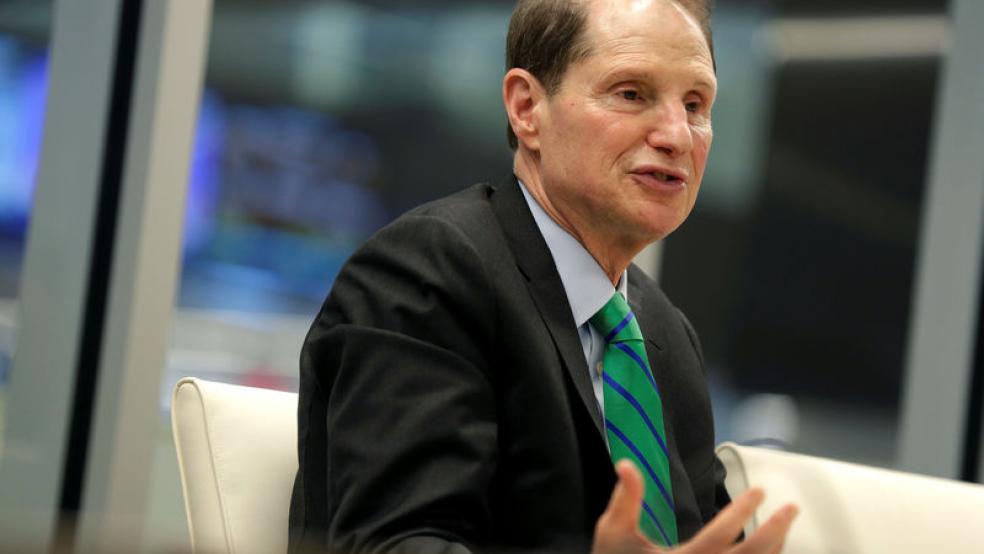Democratic leaders are projecting optimism that they be able to reach a deal on President Joe Biden’s economic agenda soon, though they aren’t there yet — and they’re still scrambling to work out how to pay for it.
“I do think I’ll get a deal,” Biden said at a CNN town hall event Thursday night, adding that negotiations were down to four or five outstanding issues. “I think we can get there,” he said.
House Speaker Nancy Pelosi (D-CA) echoed that Friday after a morning meeting with the president and Senate Majority Leader Chuck Schumer (D-NY). “There are many decisions that have to be made, but more than 90 percent of everything is agreed to and written,” Pelosi told reporters.
Talks will continue over the weekend, and Punchbowl News reported Friday morning that the White House is pushing for a House vote next week on both the economic package that Democrats want to pass via the budget reconciliation process and a $1 trillion bipartisan infrastructure bill.
Locking down the final details of the budget reconciliation bill likely won’t be easy, though.
Biden was remarkably candid at the town hall event about the state of negotiations, highlighting the challenges that Sens. Joe Manchin (D-WV) and Kyrsten Sinema (D-AZ) have presented in objecting to various elements of the legislation.
He confirmed, for example, that his plan to provide two years of tuition-free community college has been dropped from the package after Manchin and “one other person” said they wouldn’t support it.
Biden also acknowledged that the paid leave provision in the bill has been reduced from 12 weeks to four. “The reason it’s down to four weeks is we can’t get 12 weeks,” he said.
And he said that a proposed expansion of Medicare coverage to include dental, hearing and vision — a priority for many progressives — would be “a reach” as Manchin and Sinema both oppose it. Manchin “doesn't want to further burden Medicare so that — because it will run out of its ability to maintain itself in the next number of years,” Biden said. “There's ways to fix that, but he's not interested in that part, either.”
Biden said that Sinema does support providing help for people to cover hearing aid costs, and he floated a plan to provide an $800 voucher to cover dental work for Medicare beneficiaries.
A new tax plan: With Sen. Kyrsten Sinema (D-AZ) single-handedly pulling the plug on a plan to raise tax rates on corporations and wealthy households, Democrats are scrambling to find new revenues to help offset the cost of President Biden’s sprawling social spending plan – and the roughly 700 billionaires in the U.S. are increasingly being seen as a key source.
Senate Finance Chair Ron Wyden (D-OR) is reportedly drafting a plan to tax the assets owned by billionaires, on the assumption that Sinema will support that approach. Under the Wyden plan, anyone with assets worth $1 billion or income of $100 million three years in a row would have to pay taxes on the tradable assets they own – a major change from the current system, which generally taxes assets only when they are sold.
To start, billionaires would assess the current value of their tradable assets – which include stocks, bonds, real estate and art – and pay a one-time tax on the increase in value since those assets were acquired. Moving forward, billionaires would pay taxes on the growth of those assets on an annual basis, using a “mark to market” system to determine values. Losses would be recognized as well, through deductions.
“The Billionaires Income Tax is about fairness and showing the American people taxes aren’t mandatory for them and optional for the wealthiest people in the country,” Wyden said in a statement. “No working person in this country thinks it’s right that billionaires can pay no taxes for years on end, and sometimes never at all.”
Wyden says a billionaire tax is a political winner for Democrats. “It clearly connects in some of the most challenging political communities in the country — it makes Build Back Better enormously more popular,” he told The New York Times. “I’d like to see elected officials stand up and say, ‘Hey, I don’t think billionaires ought to pay any taxes.’”
Support not guaranteed: While Sinema has not explicitly endorsed the billionaire tax, aides in the Senate say that no Democrats have expressed opposition to the plan. House Democrats, however, may be a tougher sell.
House Ways and Means Chair Richard Neal (D-MA) expressed concerns that the Wyden plan could “become really complex,” and some Democrats told The Washington Post that they were wary of creating a whole new tax system in just a few days.
Republicans are expected to oppose the plan, though their votes won’t count under the current plan to use budget reconciliation to pass the plan. Sen. Sen. Mitt Romney (R-UT) told the Times the tax was a “very bad idea” that would distort the behavior of the very wealthy. “People are rational beings,” he said. “They’d move away from tradable assets, and then go to untradable assets. And that means that you’re going to have a depression on things like venture capital, private equity, in the stock market and people’s 401(k)s.”





